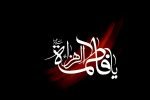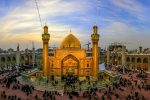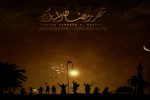BIRTH OF THE HOLY PROPHET (P.B.U.H & HIS HOUSEHOLD)
The dark clouds of ignorance had completely enveloped the Arabian Peninsula. Abominable and unlawful deeds, bloody campaigns, wide-spread plundering, and infanticide had obliterated all moral virtues, and placed the Arab society in a strange dclivity. The distance between their life and death had become very short. Just at this time the morning star of prosperity […]

The dark clouds of ignorance had completely enveloped the Arabian Peninsula. Abominable and unlawful deeds, bloody campaigns, wide-spread plundering, and infanticide had obliterated all moral virtues, and placed the Arab society in a strange dclivity. The distance between their life and death had become very short. Just at this time the morning star of prosperity made its appearance and that dark atmosphere was illuminated with the auspicious birth of the Holy Prophet. Thus the preliminary step towards the foundation of the civilization and the advancement and prosperity of a backward nation was taken. Soon the beams of this light lit up the entire world and the foundation of learning, wisdom and civilization was laid.
Every chapter of the lives of great men is worthy of study and scrutiny. At times the personality of an individual becomes so great and grand that all phases of his life, even his infancy and childhood, are mysterious. The lives of the geniuses, leaders of the society, and the forerunners of the caravan of civilization, are usually attractive and contain sensitive and wonderful phases. From the cradle to the grave their lives are replete with mysteries. We read about the great men that the periods of their childhood and youth are admirable and miraculous. And if we accept this proposition about the great men of the world, the acceptance of something similar to that about the Prophets and saints becomes quite easy.
The Taurat and the Qur’an depict the childhood of Prophet Musa as very mysterious and say “Hundreds of innocent children were beheaded with the object, so that Musa should not be born. However, as Allah had willed that he should make his appearance in the world, it so happened that not only could his enemies not harm him, but Firaun, his greatest enemy, himself became his guardian and supporter”. The Holy Qur’an says: We revealed Our Will to Musa’s mother, saying: Put your chld in the box arid let him be carried away by the river. The river will cast him on the bank safely, and he will be taken up by an enemy of his and Mine. I lavished my love on you, so that you might be reared under My watchful eye.
The sister of Musa went to the palace of Fir’aun and said, “Shall I bring you one who will nurse him?” Then the mother of Musa was hired to nurse the child and her son was thus restored to her.(Surah Taha, 20: 41 – 43 ).
The period of pregnancy, birth and nurture of Prophet ‘Isa was even en more wonderful than that of Prophet Musa. The Holy Qur’an narrates the period of growth of ‘Isa in this manner:We sent to her (i.e. Maryam) Our spirit (i.e. Archangel Jibril) in the semblance of a full-grown man. And when she saw him she said “May the Merciful defend me from you! If you fear the Lord, leave me and go your way”. “I am the messenger of your Lord”, he replied and have come to give you a holy son”. “How shall I bear a child,” she answered, “when I am a virgin, untouched by man”? “Such is the Will of your Lord”, he replied, “that is no difficult thing for Him. He shall be a sign to mankind”, says the Lord, “and a blessing from Ourself. This is Our decree”.
Thereupon she conceived him, and retired to a far-off place. And when she felt the throes of childbirth, she lay down by the trunk of a palm-tree crying “Oh, would that I had died and passed into oblivion!” But a voice from below cried out to her “Do not despair. Your Lord has provided a brook that runs at your feet, and if you shake the trunk of this palm-tree it will drop fresh ripe dates in your lap. Therefore rejoice. Eat and drink, and should you meet any mortal say to him: “I have cooled a test to the Merciful and will not speak with any man today” .
Then she took the child to her people, who said to her, “This is indeed a strange thing! Sister of Harun, your father was never a whore-monger, nor was your mother a harlot”.
She made a sign to them, pointing to the child, but they replied “How can we speak with a babe in the cradle?”
Whereupon he spoke and said, “I am the servant of Allah. He has givers me the Gospel and ordained me a Prophet .. …. (Surah Maryam. 19:18 – 32)
When believers in the Qur’an and the Taurat and the followers of Prophet ‘Isa confirm the above-mentioned facts connected with the birth of the two great Prophets they should not wonder at the extraordinary events which followed in the wake of the auspicious birth of the Prophet of Islam and should not treat them to be superficial. We learn from the books on history and ahadith (reports) that at the time of the birth of the Holy Prophet the walls of the palace of Khosroes split and some of its turrets collapsed. The fire of the fire-temple of Persia extinguished. The lake of Sawah became dry. The idols in the temple of Makkah were turned upside down. A light ascended from the Holy Prophet’s body towards heaven and illuminated a distance of many leagues along its path. Anushirwan and the Zoroastrian priests dreamt very horrible dreams. When the Holy Prophet was born he was already circumcised and his navel too had been cut. On coming into the world he said “Allah is Great and all praise is due to Him and He is to be praised day and night”
All these details are given in authentic historical documents and in the collections of ahadith[1] and keeping in view the facts regarding Prophet Musa and Prophet ‘Isa, which have been mentioned above, there is no justification for hesitation in the acceptance of these events.
YEAR, MONTH AND DATE OF BIRTH OF THE PROPHET OF ISLAM
The writers of “Seerah” (biographies of the Prophet) generally agree that the Prophet of Islam was born in the “Year of the Elephant” in 570 A.D. As it is definite that he breathed his last in 632 A.D. when he was 62-63 years old, the year of his birth must have been 570 A.D.
Almost all the traditionalists and historians are unanimous that the Prophet was born in the month of Rabi’ul Awwal, but they differ about the date of his birth. It is well-known among the Sh’iah traditionalists that he was born after sunrise on Friday, the 17th of Rabi’ul Awwal, whereas it is believed by the Sunni scholars that his birth took place on the 12th of that month on Monday.[2]
WHICH OF THE TWO VERSIONS IS CORRECT ?
It is a matter of great regret that authentic information about the dates of birth and death of the Prophet of Islam and, in fact, about most of the religious leaders is not available with the Muslims and on account of this ambiguity most of the celebrations of their birthdays, and death anniversaries, do not take place on days which should be definite from historical viewpoint. Aithough the Muslins scholars have recorded various events of lslamic history in a very systematic manner it is not known as to why the dates of birth and death of most of the religious leaders have not been recorded after due scrutiny.
However, this problem is solvable to some extent. In this connection let us take an example. If you wish to write the biography of a scholar belonging to a particular city and supposing that this scholar has left a number of children and other relatives behind him, would you like to enquire about the details of his life from strangers or from his friends and acquaintances in spite ot there being present his children and other members of his family, who naturally possess detailed and exact knowledge about the particulars of his life? It is definite that your conscience will not permit you to do so.
The Holy Prophet departed from amongst the people and left behind himself his family and children. These relatives of the Holy Prophet say, “If the Messenger of Allah is our revered father and we have been brought up in his house and under his patronage, we say that the head of our family came into this world on such and such date and departed from it on such and such date. In the circumstances is it permissible for us to ignore the statement of his children and rely on the version of other people?
CEREMONY OF GIVING A NAME TO THE PROPHET OF ISLAM
The seventh day approached. A sheep was slaughtered by Abdul Muttalib as an expression of gratitude to Allah and a number of persons were invited to the feast. In that magnificent celebration, which was attended by most of the Quraysh, he gave his grandchild the name “Muhammad”. When it was enquired from him as to why he had named his child “Muhammad”, while this name was very rare amongst the Arabs, he replied “I wished that he should be praised in the heavens as well us on earth”. Hassan bin Thabit, says thus in this regard:
“The Creator derived the name of His Prophet from His own name. As such, whereas Allah is “Mahmud” (laudable), his Prophet is ‘Muhammad’ (praiseworthy). Both the words have been derived from the same root and carry the same meaning”.[3]
It is certain that occult inspiration had a part to play in the selection of this name, because, although the name ‘Muhammad’ was well-known amongst the Arabs, very few persons had till then been given this name. According to the exact statistics, which some of the historians have collected, only sixteen persons had been given this name before the Holy Prophet.[4]
It goes without saying that the lesser a word is used the lesser is the chance of any misunderstanding about it. As the Heavenly Books had predicted the advent of Islam and the name, the particulars, the spiritual and corporeal signs of the Prophet, it was necessary that his signs should have been so evident that the question of any mistake should not have arisen. One of those signs was the name of the Holy Prophet and it was essential that it should be borne by so few persons that no doubt should be left about his identification, especially when his qualities and signs were appended to it. In this way the person whose appearance had been predicted by the Taurat and the Injeel could be easily identified.
The Holy Qur’an mentions two names of the Prophet.[5]
In the 138th, 2nd, 29th and 40th verses respectively of the Surah Ale Imran, Muhammad, al-Fath and al-Ahzab he has been called ‘Muhammad’ and in Surah al-Saff he has been called ‘Ahmad’. The reason for this difference is that, as mentioned in history, the Holy Prophet’s mother had named him ‘Ahmad’ before his grandfather gave him the name ‘Muhammad’.[6]
THE INFANCY OF THE PROPHET
The Prophet was suckled by his mother for three days only. Thereafter two other women had the honour of being his foster-mothers.
1.Suwaybah: She was a female slave of Abu Lahab. She nursed the Prophet for four months and remained the object of appreciation by the Prophet himself, as well as of his virtuous wife (Khadijah), throughout her life. Earlier she had also nursed Hamzah, uncle of the Prophet. After his appointment to the prophetic mission the Prophet intended to purchase her and sent someone to Abu Lahab to arrange the transaction, but he refused to sell her. However, she received assistance from the Prophet throughout her life. When the Prophet returned from the battle of Khaybar he came to know about her death and signs of grief appeared in his face. He made enquires about her son, so that he might do some good to him, but was informed that he had died earlier than his mother.
2.Halimah: She was the daughter of Abi Zuwayb and belonged to the tribe of Said bin Bakr bin Hawazan. She had three children named Abdullah, Anisah and Shima’. The last of them also attended upon the Prophet. It was customary with the noble families amongst the Arabs that they entrusted their children to wet nurses. The nurses usually lived at places beyond the city so that the children could be brought up in fresh desert air and might grow up strong and healthy. Incidentally, while staying in the desert, the children remained immune from the contagious diseases of the city of Makkah which were more dangerous for the new-born babies and they also learnt the Arabic language in an untempered region. The nurses who belonged to the tribe of Bani Sa’d were famous in this area. They visited Makkah at a particular time of the year and every one of them took a new-born baby along with her. When four months had passed since the birth of the Prophet the nurses of the Bani Sa’d tribe visited Makkah. That year they were in the grip of a severe famine and, were therefore, in great need of help from the noble families.
The new-born baby of Quraysh did not suck the breast of any wet-nurse. Eventually Halimah came and the child sucked her breast. At this moment the family of Abdul Muttalib became very jubilant.[7]
Abdul Muttalib turned to Halimah and said “To which tribe do you belong?” She replied that she belonged to the tribe of Bani Said Then he enquired about her name and she told him that it was Halimah. Abdul Muttalib was very much pleased to learn her own name and that of her tribe and said “Very good! Very good! Two good habits and two decent qualities. One of them is happiness and prosperity and the other is meekness and forbearance”.[8]
Footnotes:
Reference
[1] Tarikh-i Ya’qubi, vol. II page 5; Biharul Anwar, vol. XV, chapter 3, pp. 231 – 248 and Seerah-i Halabi, vol. I, page 64.
[2] Miqrizi has collected all the statements with regard to the day, month and year of the birth of the Prophet in al-Amta’ (page 3).
[3] Seerah-i Halabi, vol. I, page 93.
[4] Mudrak Pesh, vol. I, page 97.
[5] As regards the words ‘Taha’ and ‘Yasin’ some scholars believe that they are the ‘moqatta’ Ietters of the Holy Qur’an and not the names of the Prophet.
[6] Seerah-i Halabi, vol. I, page 93.
[7] Biharul Anwar, vol. XV, page 442.
[8] Seerah-i Halabi, vol. I, page 106.
Source: www.alhassanain.org/english
این مطلب بدون برچسب می باشد.










Leave a Reply